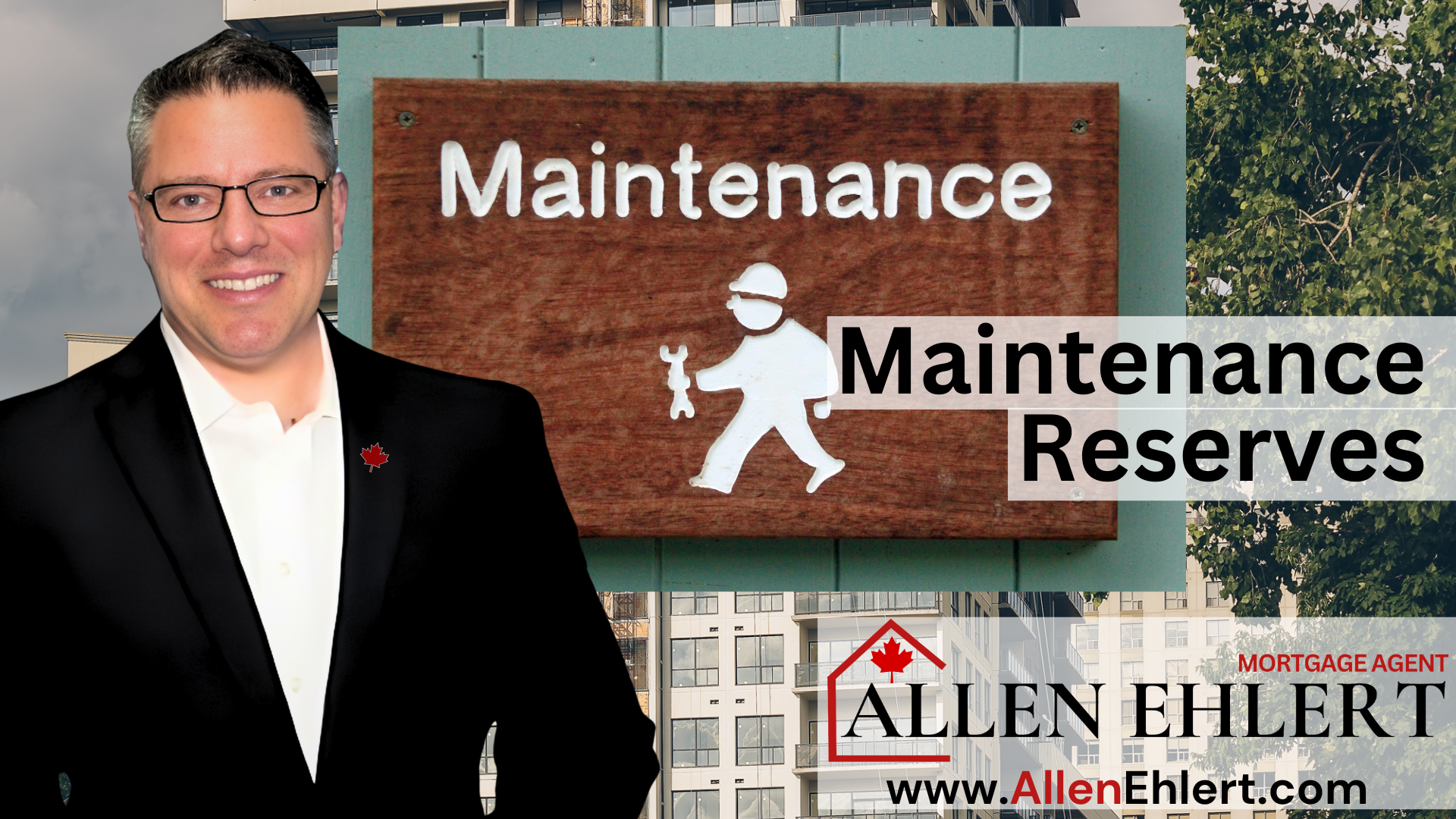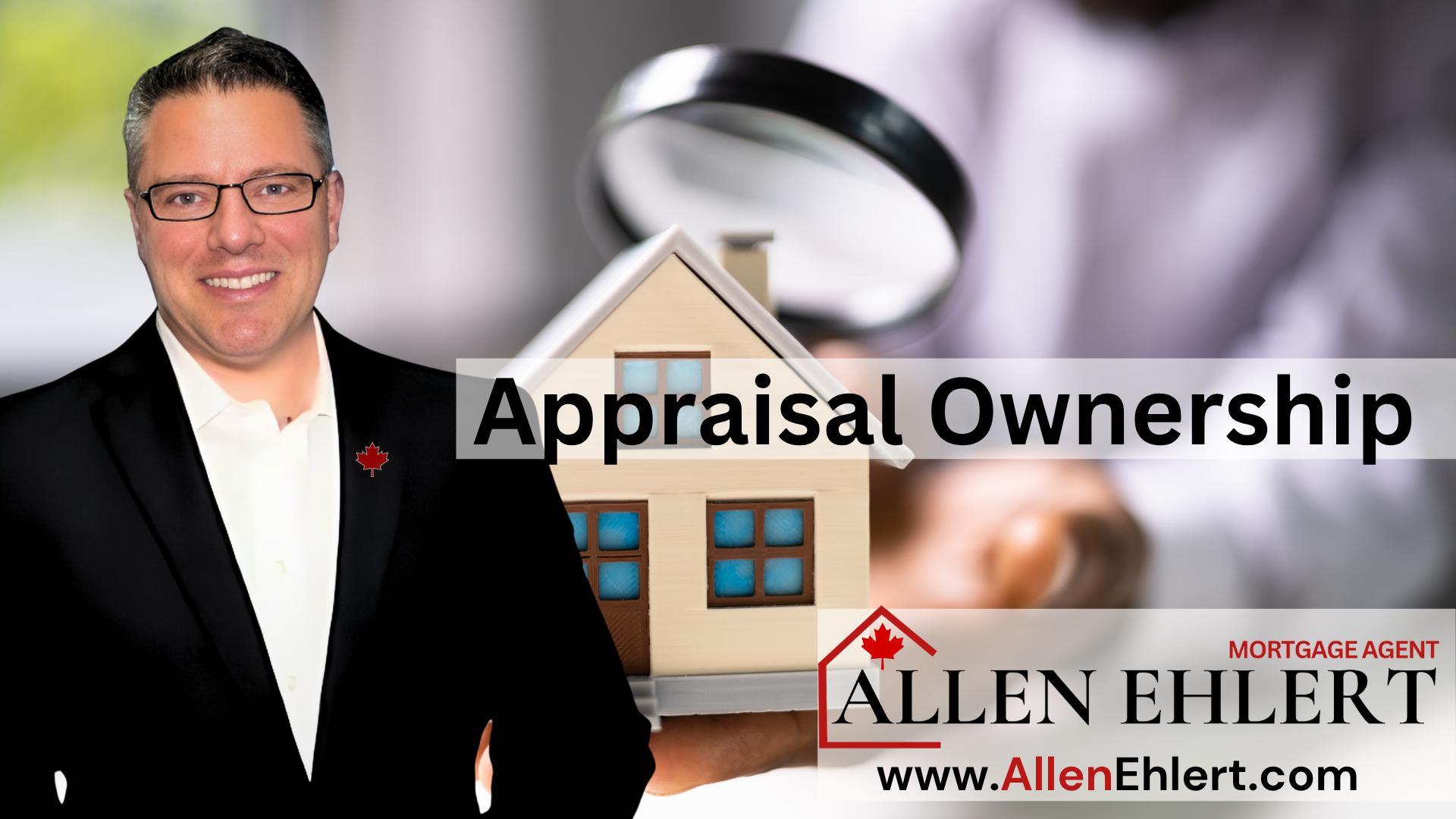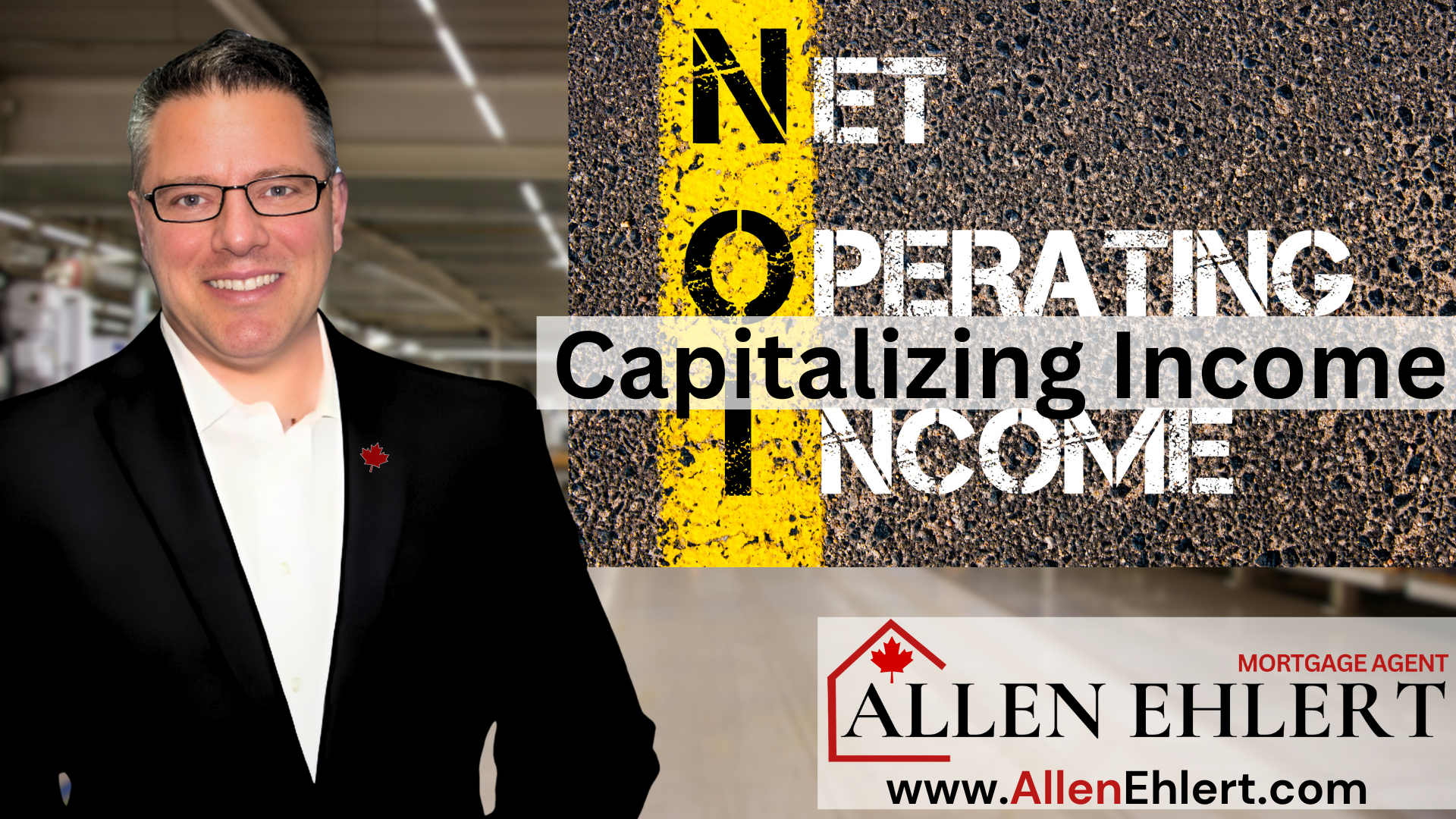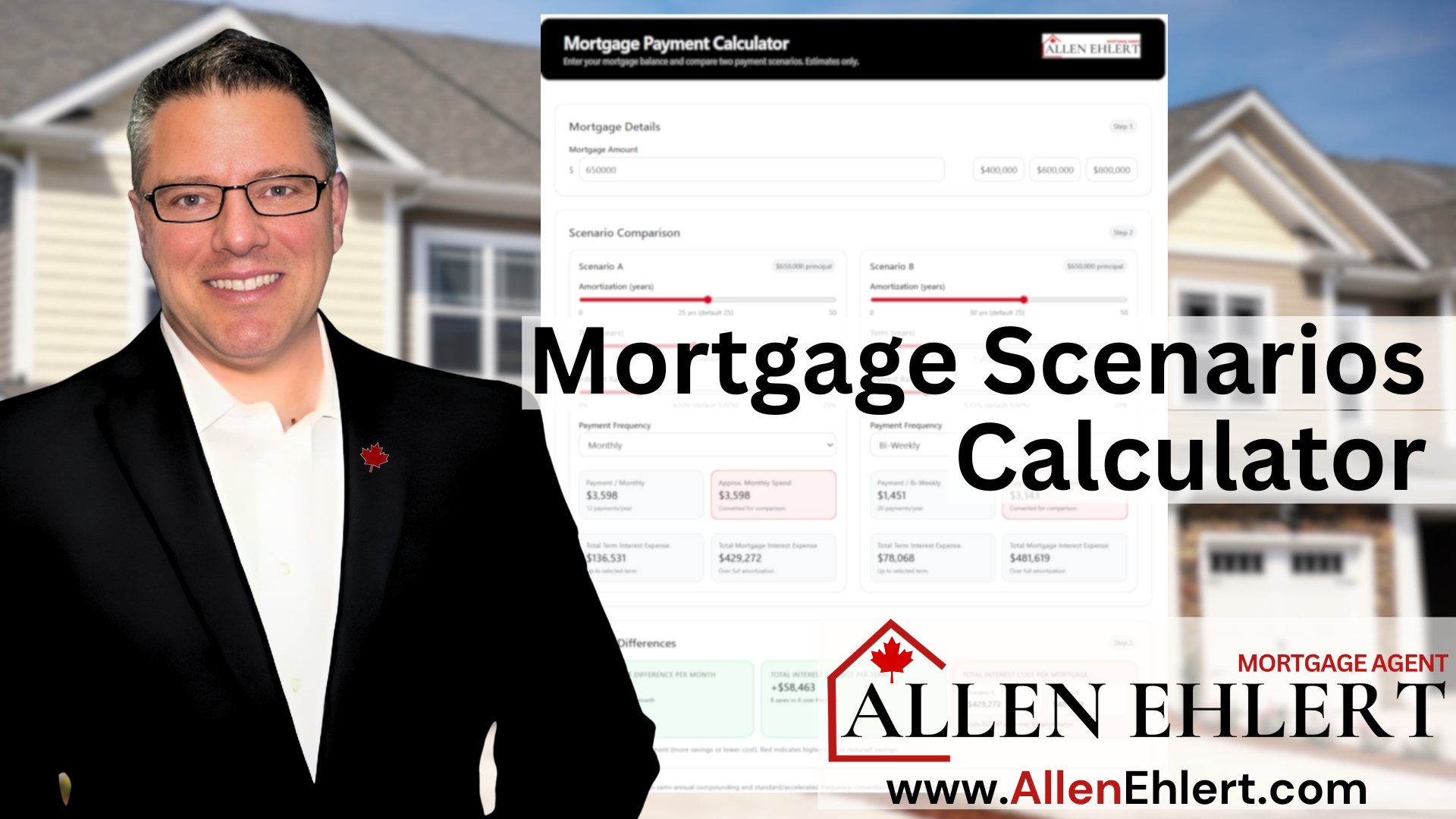… From “I Do” to “I Don’t”: Why an Alternative Lender May Be Your Best Friend in Divorce
Divorce isn’t just about splitting furniture and deciding who gets the dog. It’s about reshaping your financial life — often at lightning speed — and sometimes, the big banks just don’t play ball. If you’re navigating a separation and trying to keep or buy a home, you’ve probably already felt how rigid traditional lenders can be. That’s where alternative lenders step in — and that’s exactly where I, Allen Ehlert, Mortgage Agent, can make your life a whole lot easier.
Before I get into the nitty-gritty, here’s what I’ll cover:
What’s a Prime Lender (like a big bank)?
The Alternative Lender Difference
Divorce and Debt: Who Owes What
Storytime: How Sarah Saved Her Home
Putting This Into Practice (for Realtors & Clients)
What’s a Prime Lender?
Prime lenders are your big banks — think RBC, TD, Scotia, BMO, CIBC, National Bank. They’re federally regulated, which means they follow OSFI’s strict B-20 mortgage stress test and underwriting rules. If your paperwork is spotless, your credit is squeaky clean, and your ratios are tight, you’ll be just fine. They follow the motto, “the best time to ask for a loan is when you don’t need one.”
But if you’re going through a divorce, chances are your financial life isn’t fitting neatly into their little boxes. You’re numbers will not be looking as pretty as they would like. Prime lenders want long support-payment histories, perfectly documented income (read you make a lot of money), and zero hiccups on credit (like you ex never forgot to make a credit card payment). Life after “happily ever after”? Yeah, it rarely looks like that.
The Alternative Lender Difference
Alternative lenders — or alternate prime lenders — aren’t the Big 6 banks. They’re credit unions, trust companies, and other mortgage lenders who are more flexible in how they look at your application. They still follow smart lending practices, but they can consider stated income, separation agreements, recent support payments, and higher debt ratios that a bank would flat-out decline.
And here’s the kicker: you can’t walk into an alternative lender directly. You need a mortgage agent like me to access them. That’s part of my value — opening the doors you wouldn’t otherwise be able to access.
Divorce and Debt: Who Owes What
Here’s a classic divorce problem: your ex is supposed to take over the car loan, but until it’s officially refinanced, that debt still shows up against you at the bank. Prime lenders will count it in your Total Debt Service (TDS) ratio no matter what.
Alternative lenders? If you’ve got a signed separation agreement showing your ex is responsible, they can be flexible and leave it out. That breathing room can be the difference between approval and denial.
Spousal Buyouts Made Simple
Prime lenders do have spousal buyout programs — but they’re rigid. Funds can only be used to pay out your ex, and everything has to be neat and tidy.
Alternative lenders allow you to tap into your home’s equity not just to buy out your ex, but also to cover legal bills, pay off joint debts, or just get back on your feet. They understand real life isn’t black and white.
When Credit Takes a Hit
Let’s be real — divorce can bruise your credit. Missed payments, joint debts gone sideways, cards maxed out while lawyers bill away. Banks see this and run.
Alternative lenders, on the other hand, will often accept clients with lower credit scores. They focus more on the equity in your home and your ability to make payments going forward. Prime lenders strongly focus on your immediate financial profile; alternative lenders look at the bigger picture, and I work with them to tell your story and convince them that you are worthy of a great deal despite the immediate hiccup in the road of life.
Storytime: How Sarah Saved Her Home
Take Sarah. She and Tom divorced, and Sarah wanted to keep the house for her kids. She received $2,000/month in spousal support, but payments had only just started. She was also self-employed and only showed $45K in taxable income, even though she cleared closer to $90K.
The bank said, “Sorry, not enough history, and your income doesn’t cut it.”
I said, “Let’s look at an alternative lender.”
Working with me, I financially engineered a solution where the alternative lender accepted her separation agreement as proof of support income, considered her stated income as self-employed, and approved her mortgage. Sarah kept her home, her kids stayed in their school, and she didn’t have to start over somewhere else.
Putting This Into Practice (for Realtors & Clients)
- For Realtors: If your client is mid-divorce and worried they’ll have to sell the matrimonial home, talk to me before you list it. An alternative lender solution could let them buy out their spouse and stay put. That’s one less listing lost to circumstance, and a client who sees you as a problem solver.
- For Clients: If you’ve been told “no” at the bank, don’t assume that’s the end of the road. Bring me your story, your agreement, your goals. I can often find a lender who looks at the whole picture instead of just the paperwork.
Allen’s Final Thoughts
Divorce is hard enough without losing your home or being told you don’t qualify because you don’t fit some banker’s checklist. That’s why alternative lenders are such a lifeline — they’re built to handle the bumps and bruises of real life.
And that’s where I come in. As a mortgage agent, I don’t just take an application and punch it into a system. I advocate. I interpret. I create solutions. Whether it’s helping you access an alternative lender, structuring a spousal buyout, or smoothing over debt ratio bumps, I’m here to walk this road with you.
If you or your clients are going through a separation, let’s talk. I’ll help you keep your options — and your dignity — intact.












